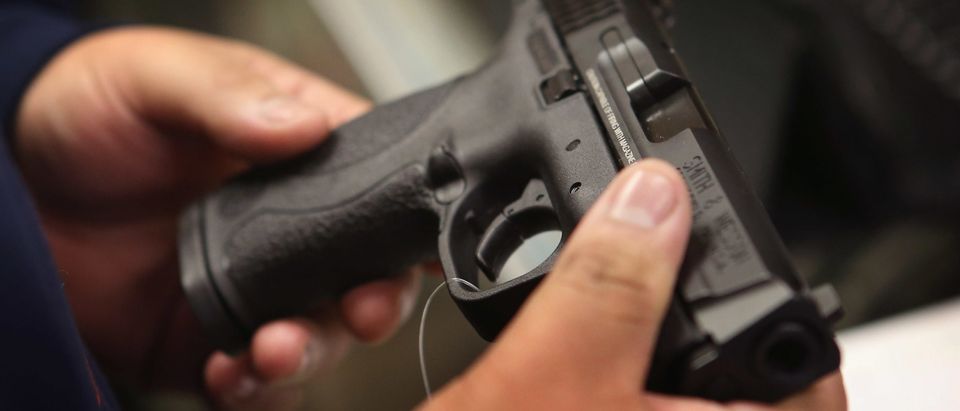

The Supreme Court ruled 9-0 on Monday that Rhode Island police officers acted illegally when they seized a man’s guns without a warrant.
Edward Caniglia sued the city of Cranston, Rhode Island, after police officers located and took his guns while he was in the hospital for a mental health wellness check. He argued that the seizure violated his Fourth Amendment rights, although two federal courts ruled against him. Those courts relied on a provision of the law that allows police to seize guns from drivers while on the road.
“The very core of the Fourth Amendment’s guarantee is the right of a person to retreat into his or her home and there be free from unreasonable governmental intrusion,” Justice Clarence Thomas wrote for the Court.
The police had argued that they were allowed to seize Caniglia’s guns during the wellness check because of the “community care-taking exception” to the Fourth Amendment. That exception allows police officers to conduct searches for what “may be described as community care-taking functions,” when “there is no claim of criminal liability.”
However, the Court rejected its application in Caniglia’s case. “What is reasonable for vehicles is different from what is reasonable for homes,” Thomas wrote.
Justice Samuel Alito noted in a concurring opinion that some of the principles of Caniglia’s case could apply to rulings on red flag laws, which allow police to seize guns owned by individuals deemed dangerous to themselves or others. “Provisions of red flag laws may be challenged under the Fourth Amendment, and those cases may come before us. Our decision today does not address those issues,” he wrote.

 How Crypto Works?
How Crypto Works?  Why Is Crypto Down? The Truth.
Why Is Crypto Down? The Truth.  Cleveland Clinic Bans Severely Ill Ohio Man From Kidney Transplant Because The Donor Isn’t Vaccinated
Cleveland Clinic Bans Severely Ill Ohio Man From Kidney Transplant Because The Donor Isn’t Vaccinated  LOUISIANA WILL EXPUNGE YOUR CRIMINAL RECORD IF YOU AGREE TO GET VACCINATED
LOUISIANA WILL EXPUNGE YOUR CRIMINAL RECORD IF YOU AGREE TO GET VACCINATED  Kraft Heinz CEO says people must get used to higher food prices
Kraft Heinz CEO says people must get used to higher food prices 


